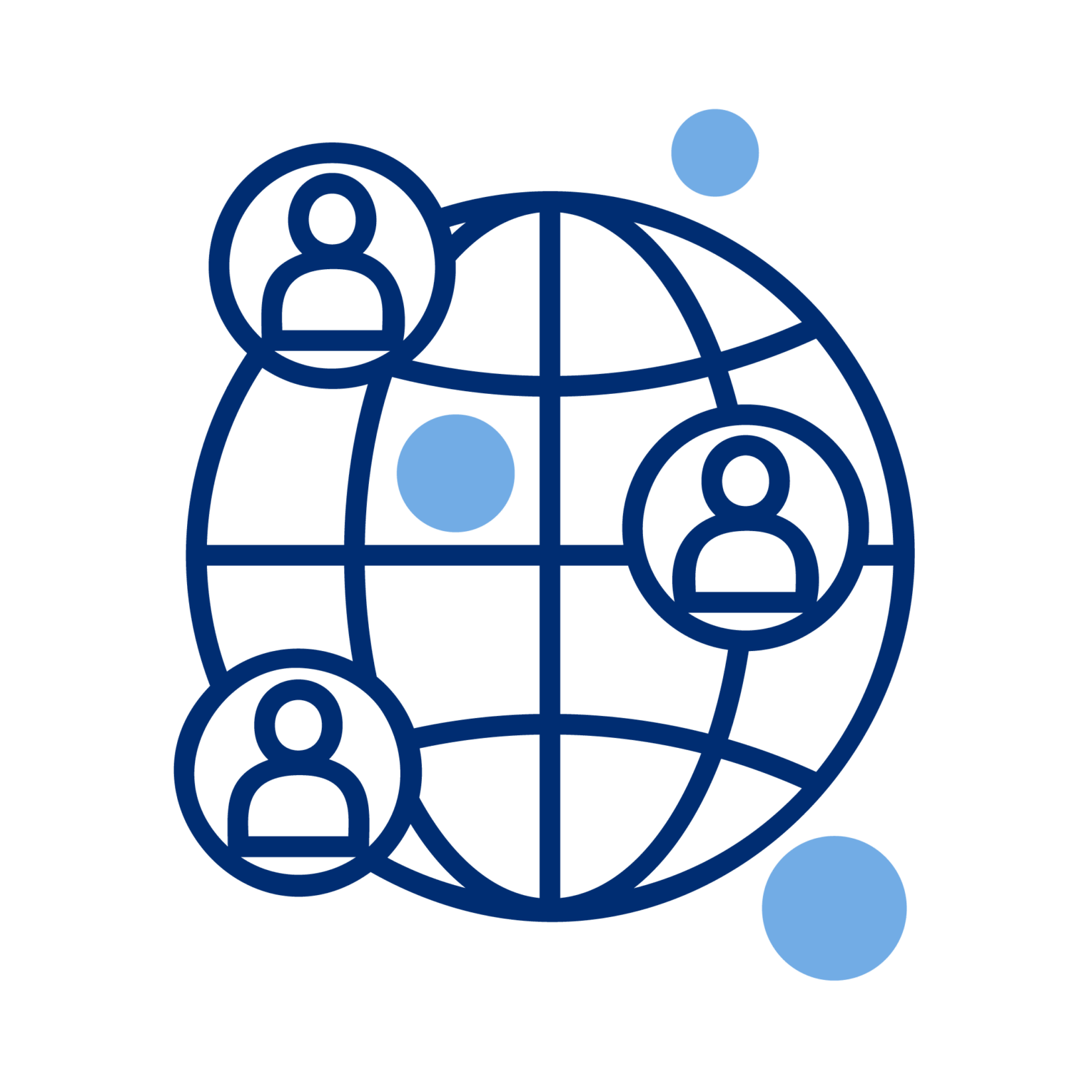Customize Your DNP Post-Master’s Track Journey with Focused Expertise and Broader Impact
Current and Prospective Students, Connect with Admissions for Additional Information.
Advance Your Expertise. Lead Transformational Change
The DNP Post-Master’s Track is your gateway to advancing as a visionary leader and change-maker in healthcare. Choose from cutting-edge specializations—Leadership, Health Policy, Planetary Health, Nursing Education, Global Health, and Artificial Intelligence—each designed to deepen your expertise and expand your influence.
This program doesn’t just prepare you to keep pace with the rapidly evolving healthcare landscape, it equips you with the strategic knowledge, innovative tools, and interdisciplinary perspective needed to drive bold solutions and transform systems. Whether you’re shaping policy, revolutionizing education, advancing technology, or leading at the highest levels, you’ll graduate ready to make a powerful, lasting impact locally and globally.
Step into a program built to elevate your career and empower you to reshape the future of health.
Post-Master’s Specializations
Learn More
The Leadership Specialization provides the knowledge and tools needed to be a successful leader in a healthcare organization and/or healthcare community. Options include exploring organizational behavior, the power of motivation, ethics, and essential principles of personal and interpersonal leadership. Courses are also offered on examining the design, management, and leadership of teams in organizational settings; and acquiring essential knowledge and skills that typify nursing leadership effectiveness in various levels of healthcare organizations. Additional topic areas include understanding economic concepts and applications in health and healthcare, and healthcare quality and safety to enable the development of competencies applied to healthcare leadership roles. Finally, participants can examine selected principles of personal and professional growth and development necessary for envisioning and constructing an impactful leadership career trajectory.
Leadership Courses
Students take 3 to 5 courses for a total of 9 credits from list below.
- Ethics & Leadership in Organizations
- Leading Organizations
- Leading Change: Building and Empowering Teams
- Healthcare Economics for Management and Practice
- Leadership Role Identity and Career Development (required for specialization)
- Leadership and Organizational Culture: Theories and Practice in Contemporary Healthcare (required for specialization)
- Foundations of Healthcare Quality and Safety

The Health Policy Specialization prepares health professionals to better understand and advance public United States health care policy improvements. A fundamental option for this specialization includes understanding the United States health care system and the concepts and tools of health policy. Additional specific health policy offerings explore United States pharmaceutical policy, social policy for marginalized and disenfranchised populations, and policy and politics of nutrition programs that affect family health. Additionally, lectures, group exercises, and “mock” congressional hearings are offered to gain skills in evaluating the policymaking process, influencing policymaking, and effectively translating and communicating in a policymaking environment.
Health Policy Courses
Students take 3 to 5 courses for a total of 9 credits from list below.
- Social Policy for Marginalized and Disenfranchised Populations in the U.S.
- Introduction to the US Healthcare System
- Health Advocacy
- US Pharmaceutical Policy
- Nutrition Programs, Policy and Politics in the United States: the Impact on Maternal, Child and Family Health
- Introduction to Health Policy

The Planetary Health Specialization equips health professionals with the skills to understand, evaluate, assess, and design adaptation and mitigation strategies for global climate change impacts on public health. Offerings include exploring the science of climate change and the range of potential impacts on public health, as well as delving into specific topic areas of food systems and their relationship with public health, and planetary health law, policy, and governance. Seminars are also offered to explore the causes, consequences, and implications of key global environmental challenges to public health, and to address global and domestic health challenges through a One Health lens. An additional offering examines how the built environment could and must change to provide a healthy and sustainable future.
Planetary Health Course
Students take 3 to 5 courses for a total of 9 credits from list below.
- Climate Change and Public Health Problem Solving Seminar: Global Challenges and Solutions for Mitigation, Adaptation, and Sustainability
- Introduction to Food Systems and Public Health
- Climate Change and Public Health
- Planetary Health Law: Global Health Security and a Changing Environment
- One Health Seminar
- A Built Environment for A Healthy and Sustainable Future
- Global Sustainability & Health Seminar

The Nursing Education Specialization provides strategies and skills for designing, teaching, and evaluating nursing educational programs. Offerings include examining the theories, concepts, and the science of curriculum development to inform academic curriculum design and practice, exploring instructional strategies to promote engagement and interactive learning in the academic and clinical setting. Also included is understanding the knowledge, skills, and tools needed to develop and teach in a traditional and an online learning environment. An additional offering focuses on evaluating nursing educational programs, with an emphasis on the role of administrators, faculty, students, and communities of interest in the evaluation process. This specialization offers a certificate after completion of four courses with a total of 12 credits. Lastly, after nine credits in this specialization, one can sit for the Certified Nurse Educator exam. There is a separate application process to obtain the certificate, visit the Post-Master’s Nursing Education Certificate page for more information
Nursing Education Courses
Students take 4 courses for a total of 12 credits from list below.
- Teaching Strategies in Nursing
- Online Teaching and Learning: Development and Instruction
- Evaluation: from Individual to Program
- Curriculum Theory and Design

The Global Health Specialization equips health professionals with the essential knowledge and skills needed to lead, influence policy, and practice effectively in the field of global health. Offerings include understanding foundational approaches and issues in International Health, and exploring the causes, consequences, and implications of key global environmental challenges to public health. Additional offerings focus on identifying infectious disease threats on global health security, addressing barriers that women face in global health leadership, understanding financing in global health, developing training methods and continuing education for health workers, and exploring entrepreneurship and launching a global health non-profit.
Global Health Courses
Students take 3 to 5 courses for a total of 9 credits from list below.
- Essentials of Global Health Leadership Policy and Practice for the Healthcare Professional
- Infectious Disease Threats to Global Health Security
- Essential Skills for Women’s Leadership in Global Health
- Introduction to Financing in Global Health
- Global Health Entrepreneurship: Foundations of Launching a Global Health Non-Profit
- Training Methods and Continuing Education for Health Workers
- Foundations of International Health
- Global Sustainability & Health Seminar

The Artificial Intelligence (AI) Specialization explores modern AI and the use of AI technologies such as machine learning and autonomous systems in healthcare. Offerings include understanding critical components of AI from a leadership perspective and how they impact efforts within their organizations; examining the moral, ethical, and cultural aspects of AI; and understanding cognitive and behavioral principles and mechanisms which AI strives to replicate. An additional offering focuses on understanding neuromarketing AI, which examines the intersection of science, technology, and consumer behavior to predict consumer behavior and personalize communications with customers, employees, and stakeholders.
Artificial Intelligence Courses
Students take 3 to 5 courses for a total of 9 credits from list below.
- Values and Ethics in AI
- AI for Leaders
- AI in Healthcare
- Neuromarketing AI
- Cognitive and Behavioral Foundations for Artificial Intelligence
